
The beating of the heart is the first sign of life. The subtle lub-dub sound of your baby’s heart can tell you that everything is fine. That is why the first thing doctors do after the birth of a baby is to bring out the stethoscope and check the heartbeat. Because a healthy heartbeat ensures a healthy life. Heart murmur in kids can seem like a threat to it initially.
To understand what heart murmur is you will need to know what causes heart murmur. You will also need to know the early signs and symptoms of heart murmur in babies and children to immediately ask for medical attention. Read this article to get complete knowledge about heart murmur in kids, along with its diagnostic procedure and treatment options to prepare yourself.
In This Article
- What is a Heart Murmur?
- What Are the Causes of Heart Murmur in Babies and Children?
- What Are The Signs and Symptoms of Heart Murmur in a Child?
- Diagnosis of Heart Murmur in Babies And Children
- Are Heart Murmurs Signs of Something Else?
- What Are The Treatment Options For Heart Murmur in Children?
- FAQ’s
What is a Heart Murmur?

A heart murmur is a condition where abnormal sounds like whooshing, swishing, or rasping occur from the heart when blood pumps through it (1a).
Our heart continuously pumps blood to circulate oxygen-rich blood throughout the body. In this process, blood flows from 4 compartments of the heart through valves that regulate its direction. It is the opening and shutting down of these valves that create the significant rhythmic lub-dub sound of the heartbeat (2).
But sometimes irregular blood flow or a certain problem in the heart can create some unusual sounds. These sounds are termed as heart murmur. There are different levels of heart murmur ranging from 1 to 6 depending on the intensity of the abnormal sounds. Based on its nature there are two types of heart murmur, innocent or functional murmur and pathologic murmur.
What Are The Causes of Heart Murmur in Babies And Children?
A heart murmur is quite common in babies and children (3a) mostly because their bodies are growing rapidly and are still learning the rhythm of blood circulation. These are innocent heart murmurs that are caused by turbulent flow of blood or relatively narrow blood vessels (3b). They often do not require any medical intervention. But there can be other serious causes behind heart murmur in babies and children such as-
1. Abnormalities in The Valves of The Heart
if the valves between arteries and ventricles do not open properly or are too small or narrow then they do not aid in smooth blood flow through them. It can even cause backflow of blood in the heart known as regurgitation (4). Both scenarios can result in a heart murmur.
2. Cardiomyopathy
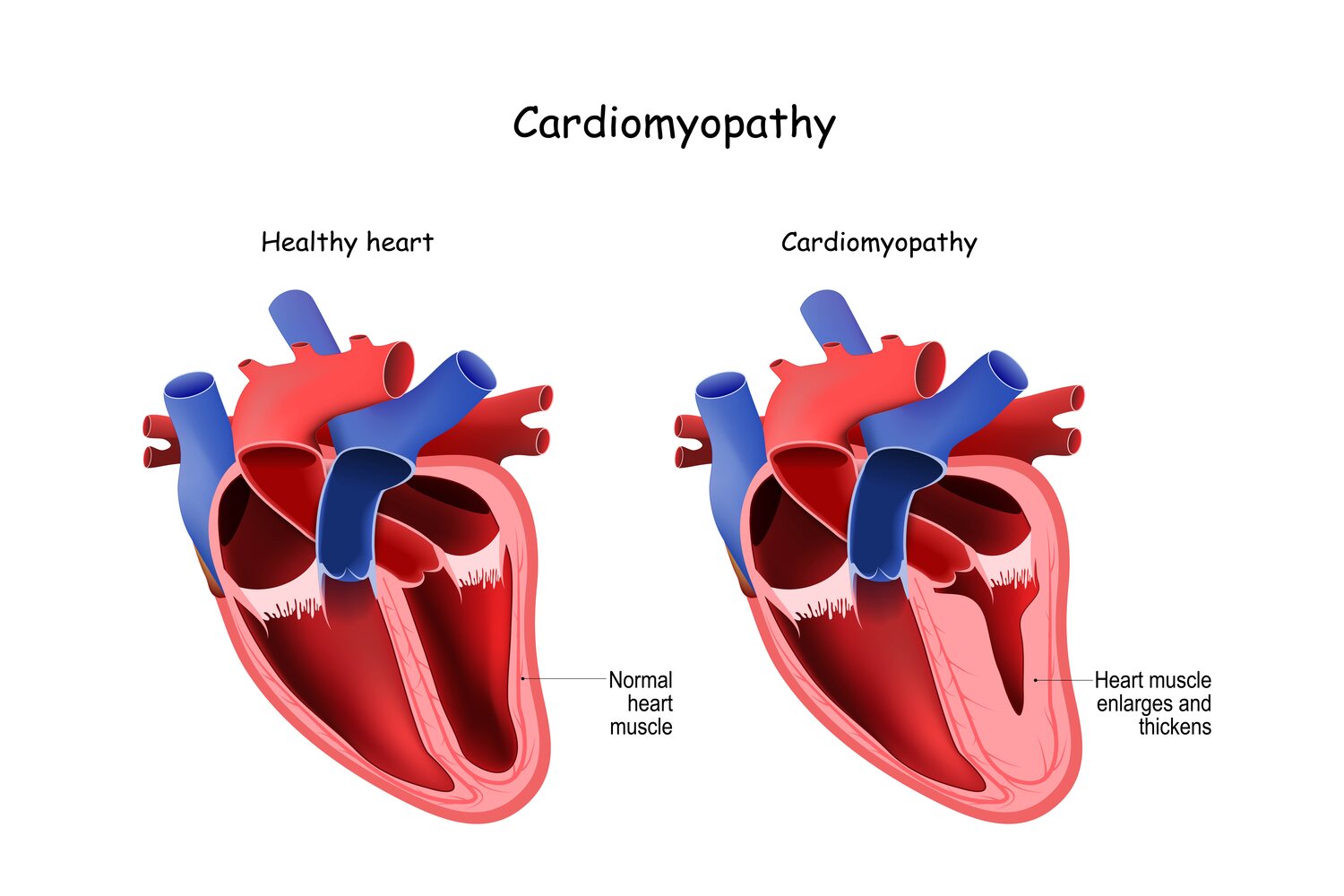
in cardiomyopathy, the heart muscles get abnormally thick or thin (5). In both cases, it hampers the suitable flow of blood and creates abnormal sounds of heart murmur.
3. Septal Defects
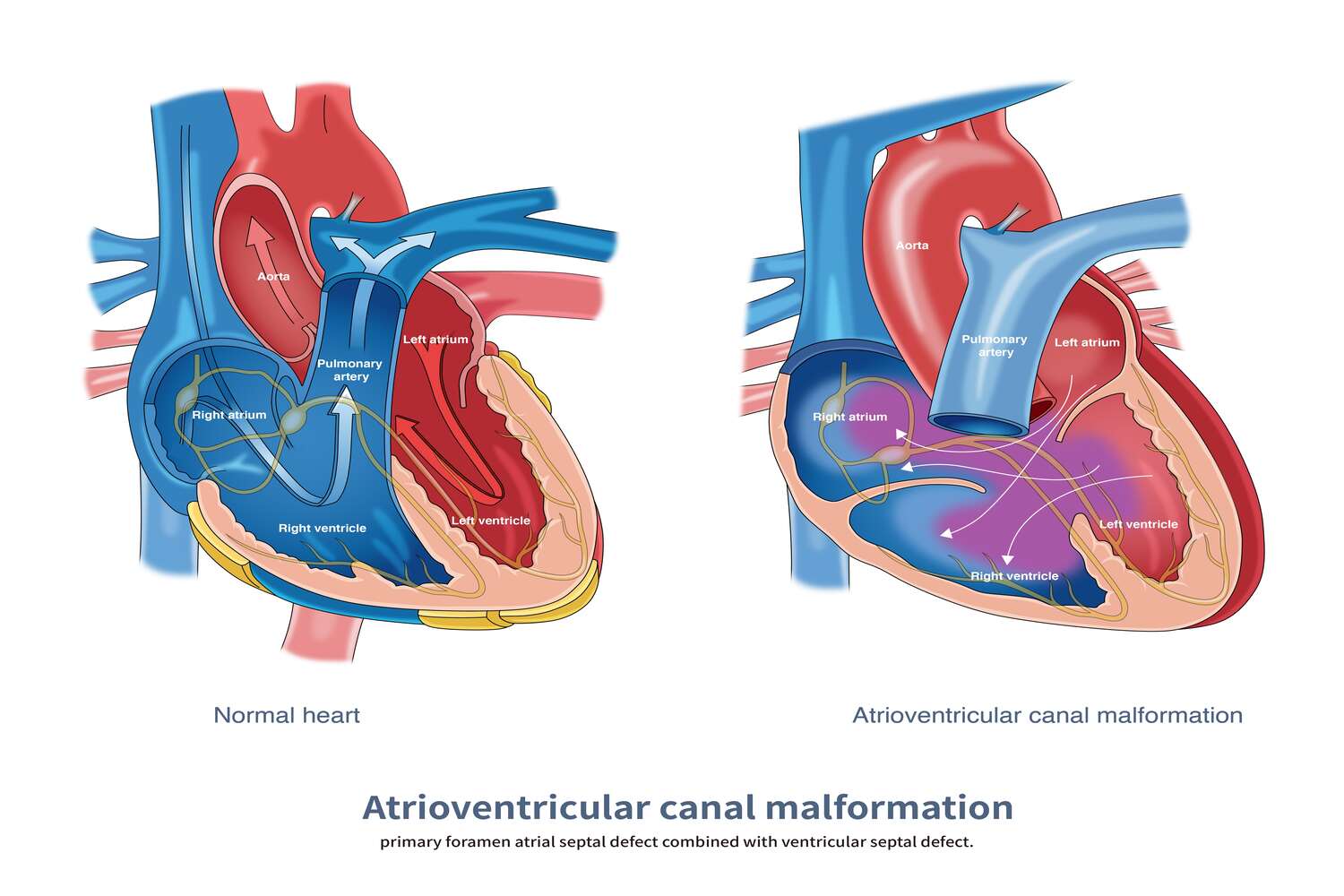
The septum is the wall between two upper chambers or arteries and two lower chambers or ventricles in the heart. If there is any defect or a hole in the septum the extra blood can flow through it with a whooshing sound. Atrioventricular septal defect is caused mainly by genetic malformation and is common in children with Down syndrome (6).
4. Patent Ductus Arteriosus
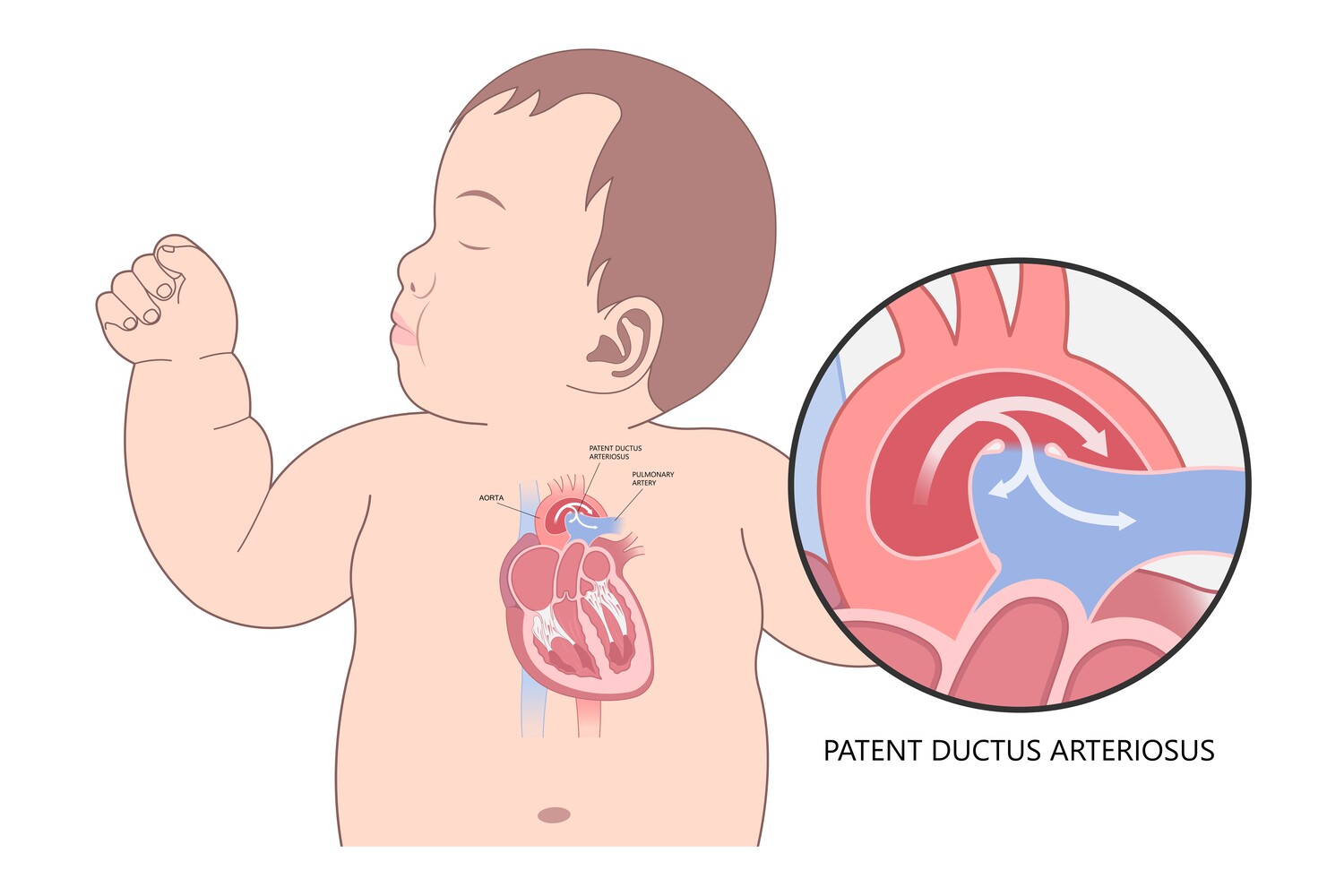
It is usually found in premature babies where a blood vessel named ductus arteriosus does not close properly (7). As a result of this blood circulates abnormally in between the 2 arteries and creates a heart murmur.
So, heart murmurs in babies are often normal which eventually stops within a few days or months. But you need to be cautious about other signs and symptoms of heart murmur that can indicate serious problems.
What Are The Signs And Symptoms of Heart Murmur in a Child?
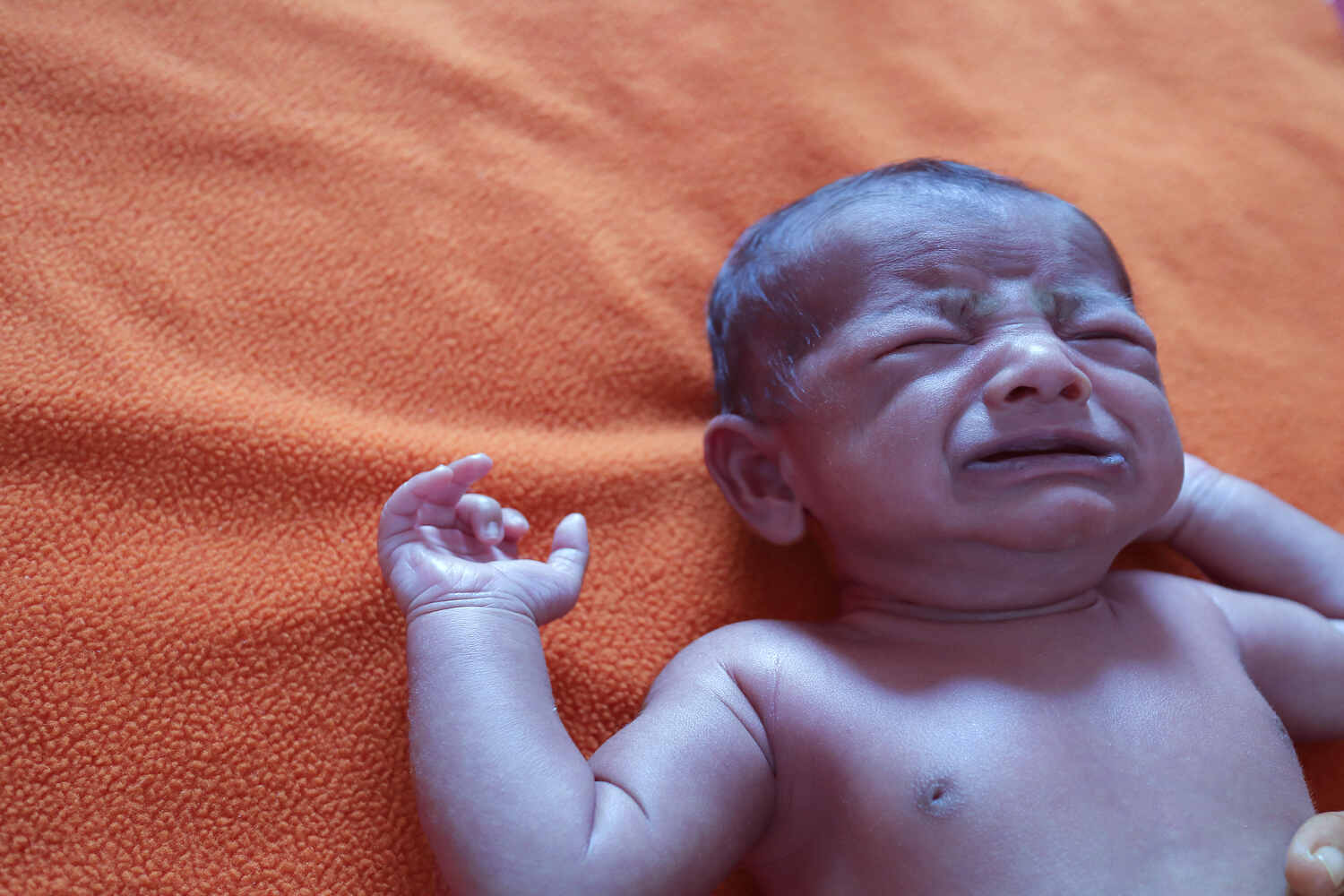
In most cases of heart murmur in a child, there are hardly any symptoms other than the strange whooshing sound of blood passing through the heart. The symptoms of a heart murmur will depend on whether the child has an innocent heart murmur or a pathologic one. Innocent heart murmur is asymptomatic and self-curable. However pathologic murmur can have symptoms such as-
- Difficulty in breathing
- Cyanosis or blue tint on the lips (8)
- Delayed growth
- Difficulty in feeding or sweating during feeding
- Loss of appetite
If you notice any of the signs of heart murmur in your child immediately go for a medical checkup. You should not neglect a heart murmur because, without a proper diagnosis, it is hard to tell what is the real problem behind it.
Diagnosis of Heart Murmur in Babies And Children
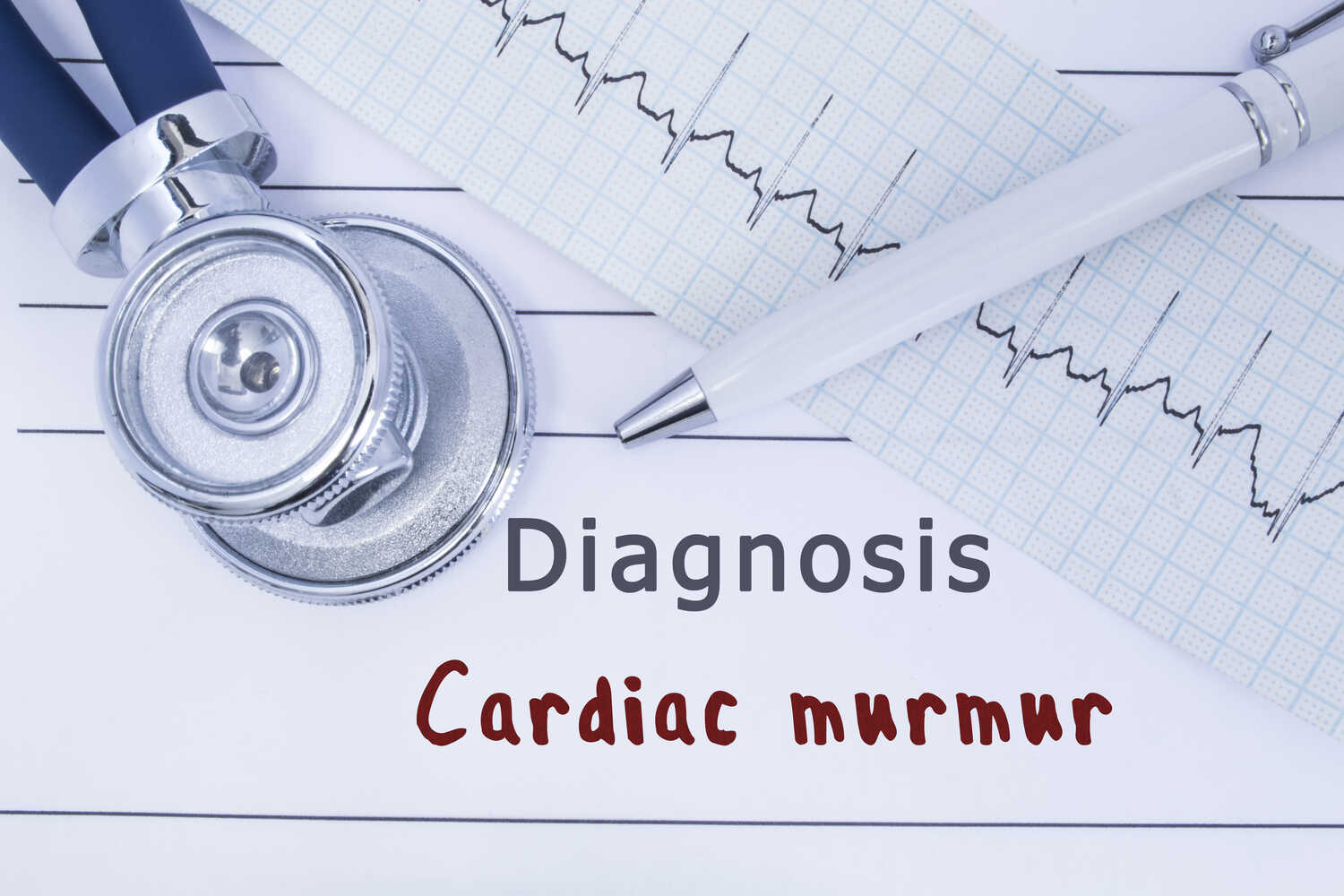
If during the routine checkup, the pediatrician suspects a heart murmur then they can refer your child to a pediatric cardiologist. The pediatric cardiologist will first check your baby’s heartbeat with the help of a stethoscope to confirm if the heart murmur is concerning or not.
Based on its intensity heart murmur has a grade from 1 to 6 (9). Doctors can hear a heart murmur from levels 1 to 4 through the stethoscope. Heart murmurs of levels 5 and 6 are loud enough to be audible when you listen calmly.
To diagnose the actual cause of a heart murmur the pediatric cardiologist can suggest further tests such as-
- Chest X-ray
- Echocardiogram
- Electrocardiogram
Depending on the result of the diagnostic tests, the pediatric cardiologist will treat your child.
Are Heart Murmurs Signs of Something Else?
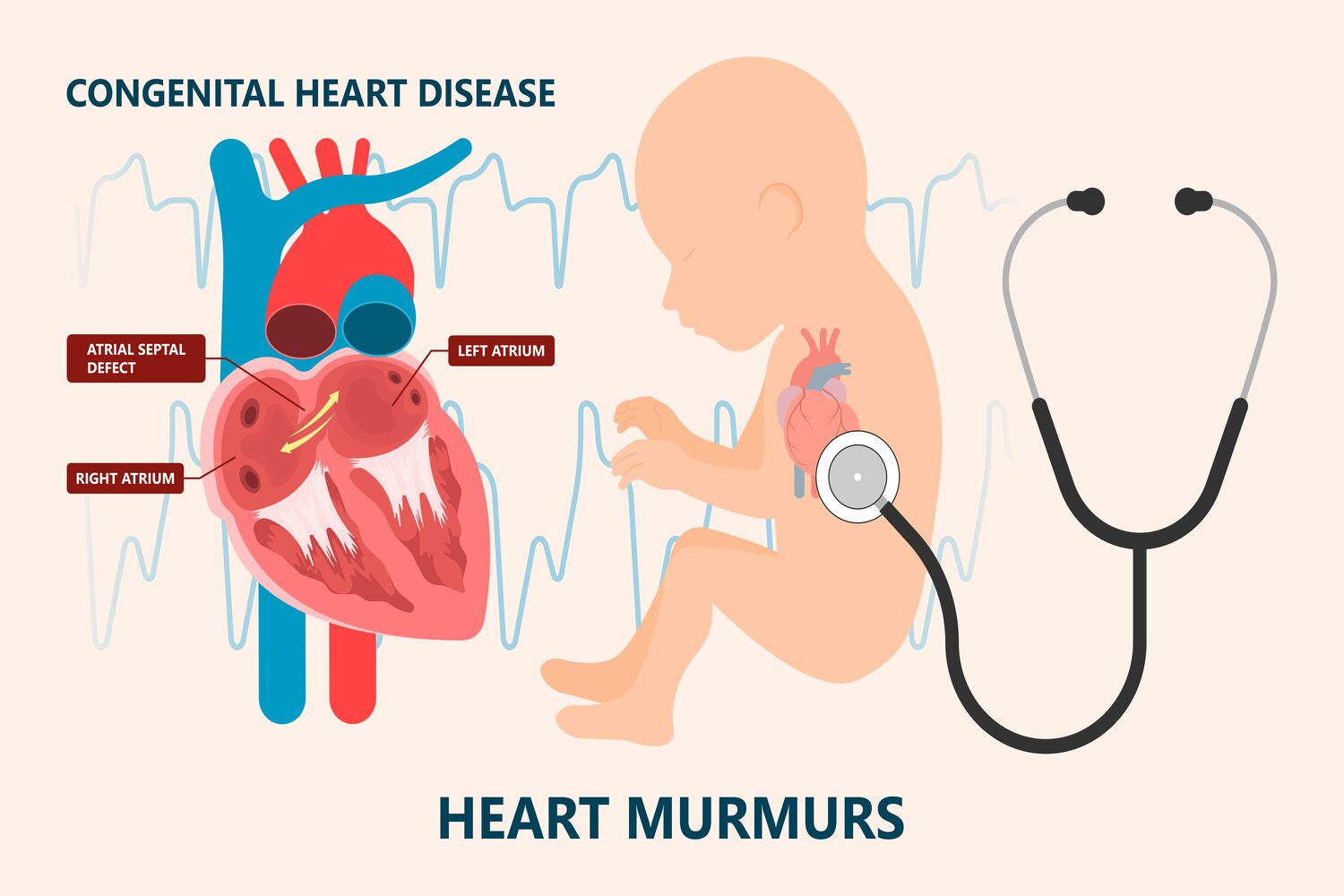
Around 48.4% of cases of heart murmur in neonates are benign or innocent. But in the other 51.6% of cases, there is some kind of heart disease or defect that causes the heart murmur (1b). Heart murmur in babies and children can be a sign of underlying problems such as-
- Congenital heart defect
- Valve regurgitation and valve stenosis in mitral, pulmonary, tricuspid, or aortic valve
- Hypertrophic cardiomyopathy
- Atrial septal defects
- Cardiomyopathy
- Patent ductus arteriosus
- Anemia
- Infection
- Hyperthyroidism or overactive thyroid
- Rheumatic fever
So if your kid has a heart murmur do not delay consulting a pediatric cardiologist.
What Are The Treatment Options For Heart Murmur in Children?

The treatment of heart murmur in children depends on the cause of the heart murmur. If it is an innocent heart murmur then the doctor may not initiate any treatment and advise you to look after proper nutrition and sleep of the baby to ensure complete growth of the heart. For pathological heart murmur, doctors can follow treatments starting from basic medications to the extent of surgery.
The doctor may advise you not to let your child get over-excited or exhausted to avoid pressure on the heart. Antibiotics will be given in case of mere infection. You may have to go with your child for a regular checkup to see if the condition improves or not. Based on the condition the doctor will then decide the future treatment.
Do not worry if your baby or child has a heart murmur. With proper care and timely medication or surgical intervention heart murmur resolves along with the factors causing it. So be attentive and hasty in seeking doctor’s help if you suspect a heart murmur. With proper care and medication your child will be alright.
FAQ’s
1. When do Babies’ Heart Murmurs go Away?
Innocent heart murmur goes away in a few months when the heart strengthens as the baby grows. But as pathologic heart murmurs are a result of any underlying defect or disease, they will not heal without proper treatment.
2. Are Heart Murmurs Genetic?
There can be possibilities of heart murmur in babies to be genetic. Especially if the heart murmur is caused by genetic heart disease then it can run in generations to come.
References
- Heart Murmur in Neonates: How Often Is It Caused by Congenital Heart Disease? – [https://www.ncbi.nlm.nih.gov/pmc/articles/PMC3446116/]
- Cardiac Exam – [https://www.ncbi.nlm.nih.gov/books/NBK553078/]
- Innocent Murmur – [https://www.ncbi.nlm.nih.gov/books/NBK507849/]
- Valvular Heart Disease – [https://www.ncbi.nlm.nih.gov/books/NBK209979/]
- Cardiomyopathy: An Overview – [https://www.ncbi.nlm.nih.gov/pmc/articles/PMC2999879/]
- Atrioventricular Septal Defect – [https://www.ncbi.nlm.nih.gov/books/NBK562194/]
- Patent Ductus Arteriosus of the Preterm Infant – [https://www.ncbi.nlm.nih.gov/pmc/articles/PMC7605084/]
- Cyanosis – [https://www.ncbi.nlm.nih.gov/books/NBK482247/]
- Physiology, Cardiovascular Murmurs – [https://www.ncbi.nlm.nih.gov/books/NBK525958/]
